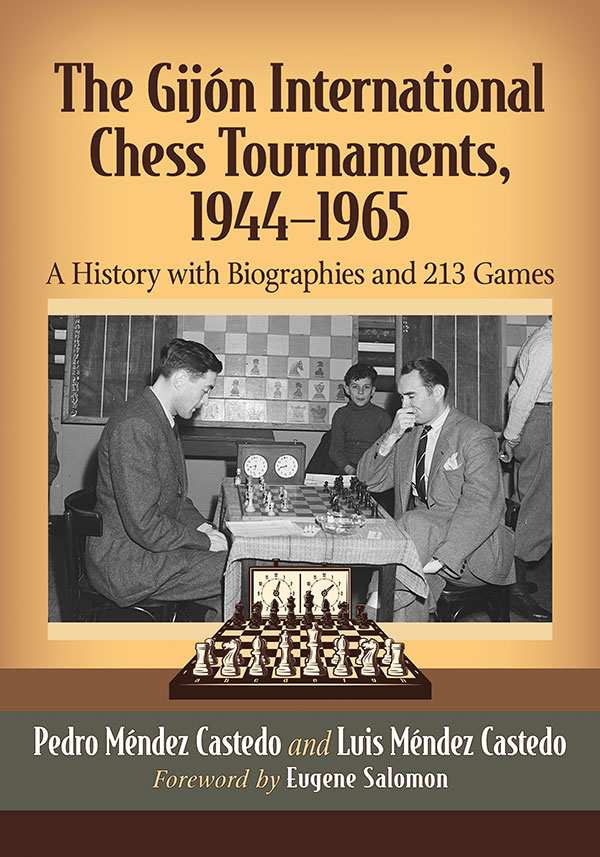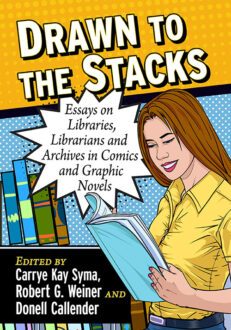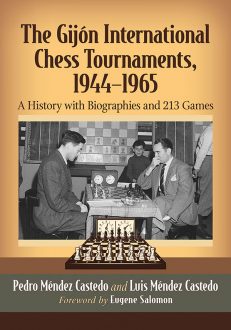The Gijón International Chess Tournaments, 1944–1965
A History with Biographies and 213 Games
$39.95
In stock
About the Book
Focusing on the recovery of chess in Spain and Europe after World War II, this book traces the development of the International Chess Tournaments in Gijón from 1944 to 1965. The authors cover the decline of world champion Alekhine and the rise of the child prodigy Arturo Pomar, along with the great chess of Euwe, Rossolimo, Prins, Medina, Larsen and others.
Drawing on primary sources and testimonies of former players and organizers, chapters feature the tournament tables, winner’s biographies, historical commentaries and 213 games.
Appendices with biographical notes and tables of participants for each year are included.
About the Author(s)
Bibliographic Details
Pedro Méndez Castedo and Luis Méndez Castedo
Foreword by Eugene Salomon
Format: softcover (7 x 10)
Pages: 252
Bibliographic Info: 21 photos, appendices, bibliography, indexes
Copyright Date: 2019
pISBN: 978-1-4766-7659-3
eISBN: 978-1-4766-3690-0
Imprint: McFarland
Book Reviews & Awards
• “Those interested in chess history and well-annotated games will enjoy this trip down memory lane.”—IM John Donaldson (JeremySilman.com)
• “The book does a nice job covering the eleven tournaments and highlighting the chess history of the Asturias region. It is a nice history that can be enjoyed by all.”—Mind’s Eye Press
• “The book does a nice job covering the eleven tournaments and highlighting the chess history of the Asturias region. It is a nice history that can be enjoyed by all.”—The Chess Journalist






